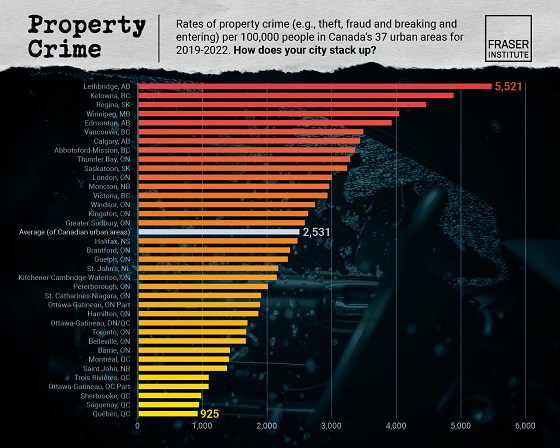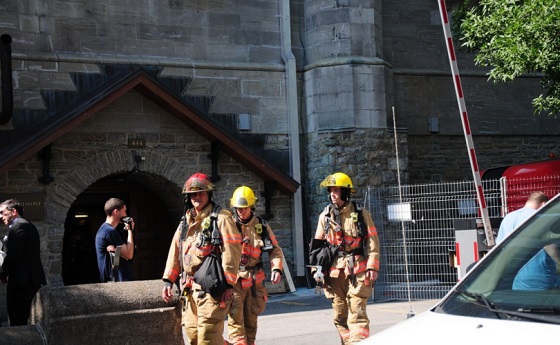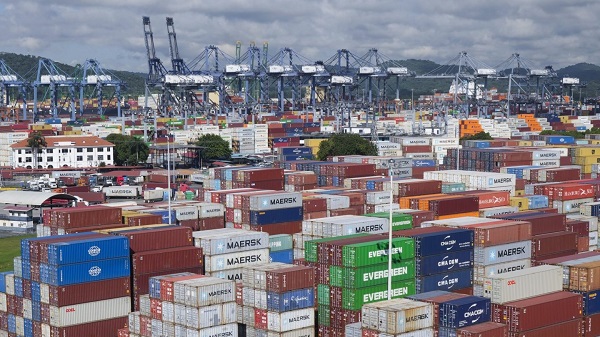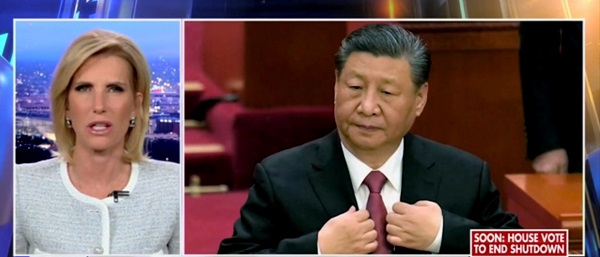Crime
Calgary has a 50% higher property crime rate than Phoenix

From the Fraser Institute
The rate of property crimes per person in Calgary is 50 per cent higher than in Phoenix, and Lethbridge has the highest rate of property crime of any large urban area in Canada, finds a new study published today by the Fraser Institute, an independent, non-partisan Canadian public policy think-tank.
“Albertans are no doubt aware that the rate of property crimes in the province’s biggest cities is on the rise, but they might not know how bad it’s become relative to American cities to the south,” said Livio Di Matteo, senior fellow at the Fraser Institute and author of Comparing Recent Crime Trends in Canada and the US.
The study examines crime rates of large urban areas with 100,000 people or more, known as Census Metropolitan Areas in Canada and Metropolitan Statistical Areas in the U.S.
Using the maximum annual crime rate from 2019 to 2022 (the most recent years of comparable date), Lethbridge had the highest rate of property crimes (e.g., burglary, theft, motor vehicle theft) of all Canadian cities while Kelowna, BC ranked 2nd.
Both Lethbridge and Calgary ranked higher than Las Vegas for property crime, while Lethbridge also ranked higher than Denver, Salt Lake City, Utah, and Los Angeles, California.
Winnipeg, Manitoba is Canada’s most-violent city with the highest per person rate of violent crimes (murder, robbery, and assault with a weapon) of all Canadian urban areas. Crucially, Winnipeg ranked 18th out of all 334 urban areas in Canada and the U.S.
“Crime rates in Alberta’s largest cities, while still historically low, are on the rise and should be of greater concern for both citizens and policymakers,” Di Matteo said.


Comparing Recent Crime Trends in Canada and the United States
- This study examines total property and total violent crimes, adjusted for population, across 36 Canadian Census Metropolitan Areas (CMAs) and over 300 U.S. Metropolitan Statistical Areas (MSAs). The data reported covers the 2019 to 2022 period.
- In general, after decades of decline, recent years have seen increases in crime rates in both Canada and the United States, though by historic standards rates remain low.
- For violent crimes, the top (worst) ranked city was Memphis, TN (1,311 per 100,000) while the top ranked Canadian city was Winnipeg, which ranked 18th overall at 675 per 100,000.
- Twenty-five percent of Canadian CMAs are in the top half of Canada-U.S. violent crime rankings with the remaining 75 percent in the bottom half.
- For property crime, the top (worst) ranked city was Lethbridge, AB at 5,521 per 100,000. Kelowna, BC ranked second highest (4,932 per 100,000). Pueblo, CO at 4,911 per 100,000 ranked third overall and was the highest (worst) ranked U.S. city.
- While Canadian CMAs make up roughly 10 percent of the CMAs and MSAs used in this ranking, when it comes to property crime rates, they account for 24 percent of the top (worst) 10 percent of the property crime rankings whereas in the case of violent crimes they accounted for only 3 percent of the cities in the top 10 percent.
- There is a distinct east-west divide in the data in that eastern Canadian cities, particularly in Quebec, tend to have lower rates (adjusted for population) of both violent and property crime compared to the west. A similar east-west trend holds in the United States.
Crime
CBSA Bust Uncovers Mexican Cartel Network in Montreal High-Rise, Moving Hundreds Across Canada-U.S. Border

A court document cited by La Presse in prior reporting on the case.
The conviction targets Edgar Gonzalez de Paz, 37, a Mexican national identified in court evidence as a key organizer in a Montreal-based smuggling network that La Presse documented in March through numerous legal filings.
According to the Canada Border Services Agency, Gonzalez de Paz’s guilty plea acknowledges that he arranged a clandestine crossing for seven migrants on January 27–28, 2024, in exchange for money. He had earlier been arrested and charged with avoiding examination and returning to Canada without authorization.
Breaking the story in March, La Presse reported: “A Mexican criminal organization has established itself in Montreal, where it is making a fortune by illegally smuggling hundreds of migrants across the Canada-U.S. border. Thanks to the seizure of two accounting ledgers, Canadian authorities have gained unprecedented access to the group’s secrets, which they hope to dismantle in the coming months.”
La Presse said the Mexico-based organization ran crossings in both directions — Quebec to the United States and vice versa — through roughly ten collaborators, some family-linked, charging $5,000 to $6,000 per trip and generating at least $1 million in seven months.
The notebooks seized by CBSA listed clients, guarantors, recruiters in Mexico, and accomplices on the U.S. side. In one April 20, 2024 interception near the border, police stopped a vehicle registered to Gonzalez de Paz and, according to evidence cited by La Presse, identified him as one of the “main organizers,” operating without legal status from a René-Lévesque Boulevard condo that served as headquarters.
Seizures included cellphones, a black notebook, and cocaine. A roommate’s second notebook helped authorities tally about 200 migrants and more than $1 million in receipts.
“This type of criminal organization is ruthless and often threatens customers if they do not pay, or places them in a vulnerable situation,” a CBSA report filed as evidence stated, according to La Presse.
The Montreal-based organization first appeared on the radar in a rural community of about 400 inhabitants in the southern Montérégie region bordering New York State, La Presse reported, citing court documents.
On the U.S. side of the line, in the Swanton Sector (Vermont and adjoining northern New York and New Hampshire), authorities reported an exceptional surge in 2022–2023 — driven largely by Mexican nationals rerouting via Canada — foreshadowing the Mexican-cartel smuggling described in the CBSA case.
Gonzalez de Paz had entered Canada illegally in 2023, according to La Presse. When officers arrested him, CBSA agents seized 30 grams of cocaine, two cellphones, and a black notebook filled with handwritten notes. In his apartment, they found clothing by Balenciaga, a luxury brand whose T-shirts retail for roughly $1,000 each.
Investigators have linked this case to another incident at the same address involving a man named Mario Alberto Perez Gutierrez, a resident of the same condo as early as 2023.
Perez Gutierrez was accompanied by several men known to Canadian authorities for cocaine trafficking, receiving stolen goods, armed robbery, or loitering in the woods near the American border, according to a Montreal Police Service (SPVM) report filed as evidence.
The CBSA argued before the immigration tribunal that Gonzalez de Paz belonged to a group active in human and drug trafficking — “activities usually orchestrated by Mexican cartels.”
As The Bureau has previously reported, Justin Trudeau’s Liberal Cabinet was warned in 2016 that lifting visa requirements for Mexican visitors would “facilitate travel to Canada by Mexicans with criminal records,” potentially including “drug smugglers, human smugglers, recruiters, money launderers and foot soldiers.”
CBSA “serious-crime” flags tied to Mexican nationals rose sharply after the December 2016 visa change. Former CBSA officer Luc Sabourin, in a sworn affidavit cited by The Bureau, alleged that hundreds of cartel-linked operatives entered Canada following the visa lift.
The closure of Roxham Road in 2023 altered migrant flows and increased reliance on organized smugglers — a shift reflected in the ledger-mapped Montreal network and a spike in U.S. northern-border encounters.
The Bureau is a reader-supported publication.
To receive new posts and support my work, consider becoming a free or paid subscriber.
Crime
Public Execution of Anti-Cartel Mayor in Michoacán Prompts U.S. Offer to Intervene Against Cartels

“I don’t want to be just another mayor on the list of those executed”
On the first night of November, during Day of the Dead celebrations, the independent, anti-cartel mayor of Uruapan in Michoacán, Carlos Manzo, was assassinated in the heart of his city during a public festival. His bloody murder has underscored the deadly risks faced by local officials who may lack adequate protection from a state that critics say is corroded by corruption and penetrated by powerful cartel networks that, in some regions, have supplanted government authority. The killing intensifies urgent questions about political and police corruption, cartel impunity, and the scope of U.S.–Mexico security cooperation — with a response from the U.S. State Department today offering to “deepen security cooperation with Mexico.”
Manzo, a fiercely outspoken anti-cartel mayor who took office in 2024 as Uruapan’s first independent leader, was gunned down as he stood before crowds at the annual Day of the Dead candlelight celebration. Witnesses said gunfire erupted shortly after Manzo appeared onstage, holding his young son moments before the attack. The festival, known locally as the Festival de las Velas, drew hundreds of families to Uruapan’s central plaza — now transformed into the scene of Mexico’s latest high-profile political assassination, and a catalyst for nationwide outrage, as online protests surged and citizens called for demonstrations against cartel violence.
According to early reports, at least two suspects have been detained and one attacker was killed on site. Authorities asserted — despite the success of the attack — that Manzo had been under National Guard protection since December 2024, with additional reinforcements added in May 2025 following credible threats to his life.
In Washington today, the killing drew political reaction. “My thoughts are with the family and friends of Carlos Manzo, mayor of Uruapan, Michoacán, Mexico, who was assassinated at a public Day of the Dead celebration last night. The United States stands ready to deepen security cooperation with Mexico to wipe out organized crime on both sides of the border,” Deputy Secretary of State Christopher Landau, the former U.S. ambassador to Mexico, said in a statement shared online.
Federal Security Minister Omar García Harfuch said the gunmen “took advantage of the vulnerability of a public event” to carry out the attack, despite a standing security perimeter.
President Claudia Sheinbaum condemned the killing as a “vile” assault on democracy and vowed there would be “zero impunity.” Her administration convened an emergency security meeting and pledged that the investigation would reach the “intellectual authors” of the crime. Yet the murder has already ignited outrage across Mexico over the government’s failure to protect local officials in cartel-dominated states such as Michoacán, where extortion, assassinations, and territorial disputes continue to erode basic governance.
Manzo had publicly warned of his fate. “I don’t want to be just another mayor on the list of those executed,” he said earlier this year, as he pressed the federal government for better coordination between municipal and military authorities. For years, Uruapan — an agricultural and trade hub in western Mexico — has been the site of deadly clashes between the Jalisco New Generation Cartel and remnants of the Knights Templar Organization, both vying to control lucrative extortion and drug routes.
The killing of Manzo fits a dark and familiar pattern. In 2025 alone, several mayors in Michoacán, Guerrero, and Tamaulipas have been killed in attacks widely attributed to organized-crime groups. In June, the mayors of Tepalcatepec and Tacámbaro were ambushed and slain while traveling in official convoys. More than 90 local officials have been murdered since 2018 — a rate that analysts say reflects how cartels target municipal governments to ensure political control over territories tied to narcotics, mining, and agriculture. Uruapan, at the heart of Mexico’s avocado belt, is a strategic prize for the cartels that tax every shipment leaving the region.
The mayor’s death also recalls earlier tragedies that scarred the nation. In 2012, Dr. María Santos Gorrostieta Salazar, the former mayor of Tiquicheo, was abducted and murdered after surviving two assassination attempts and defying cartel threats. Her death became emblematic of the dangers faced by reformers who refuse to cooperate with criminal groups. More than a decade later, Manzo’s murder illustrates that little has changed — except the brazenness of the attackers, now willing to strike in front of cameras and families celebrating one of Mexico’s most sacred holidays.
The killing has also reignited long-standing U.S. frustration over Mexico’s inability to stem cartel violence, even as the Trump administration has expanded counter-narcotics operations at the border. Under Trump’s renewed directives, the U.S. has classified several Mexican cartels as foreign terrorist organizations and empowered the Pentagon to develop strike options against high-value targets abroad. A September 2025 joint statement between Washington and Mexico City pledged deeper intelligence sharing and cross-border enforcement initiatives, including efforts to halt arms trafficking southward.
However, Mexico’s government remains deeply wary of any U.S. military involvement on its soil. President Sheinbaum has warned that “Mexico will not stand for an invasion in the name of counter-cartel operations,” rebuffing Republican calls for unilateral action. Her position lays bare a long-standing tension between Mexico’s need for U.S. support and its insistence on sovereignty — a fault line that Manzo’s killing has reignited.
The Bureau is a reader-supported publication.
To receive new posts and support my work, consider becoming a free or paid subscriber.
-

 National2 days ago
National2 days agoConservative bill would increase penalties for attacks on places of worship in Canada
-

 Frontier Centre for Public Policy1 day ago
Frontier Centre for Public Policy1 day agoRichmond Mayor Warns Property Owners That The Cowichan Case Puts Their Titles At Risk
-

 armed forces2 days ago
armed forces2 days agoCanadian veteran says she knows at least 20 service members who were offered euthanasia
-

 Alberta2 days ago
Alberta2 days agoHow economic corridors could shape a stronger Canadian future
-

 Business1 day ago
Business1 day agoMark Carney Seeks to Replace Fiscal Watchdog with Loyal Lapdog
-

 Business2 days ago
Business2 days agoSluggish homebuilding will have far-reaching effects on Canada’s economy
-

 COVID-191 day ago
COVID-191 day agoMajor new studies link COVID shots to kidney disease, respiratory problems
-

 Daily Caller2 days ago
Daily Caller2 days agoLaura Ingraham’s Viral Clash With Trump Prompts Her To Tell Real Reasons China Sends Students To US










